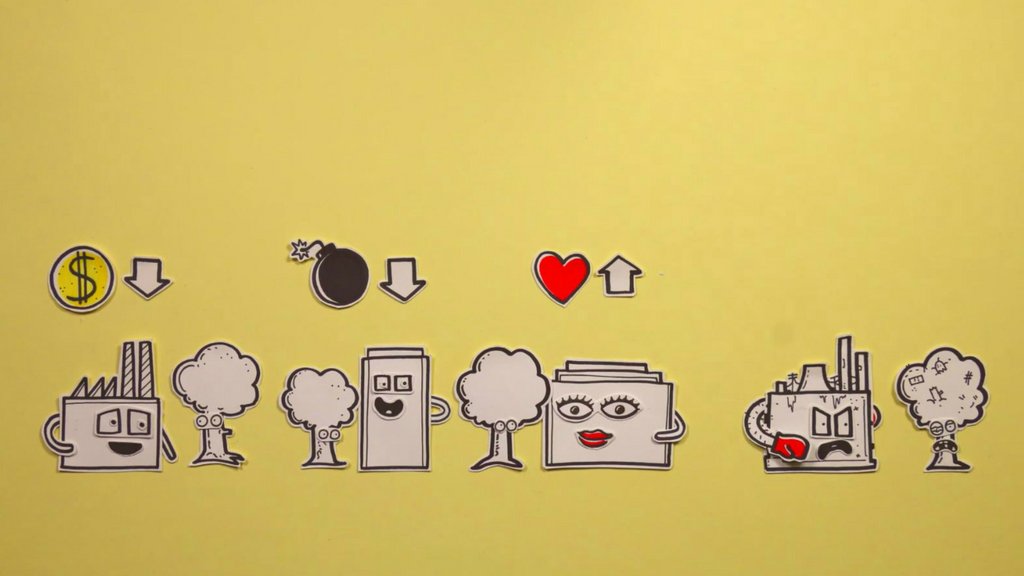Research - 04.03.2016 - 00:00

9 March 2016. The video explains the concept of sustainable business as developed by Thomas Dyllick and Katrin Muff, an academic from the Business School Lausanne. Besides business sustainability as such, the “True Business Sustainability” approach also involves instructions for responsible managerial action.
Solving problems instead of merely maximising profit
The video outlines three approaches to business sustainability: in traditional management, sustainability is irrelevant. The focus is solely on the owners’ interests and on profit. The model of business “Sustainability 1.0” regards social and ecological concerns as a means to the end of a company’s economic success.
Business “Sustainability 2.0” goes a step further: this model assumes that enterprises create value in three dimensions and thus simultaneously pursue economic, ecological and social objectives.
True business “Sustainability 3.0” is not only interested in reducing the negative effects of a company’s own activities. It is geared to solving social problems and to making a genuine contribution in order to serve society, the environment and the economy in equal measure. The result is that every unsolved problem can be regarded as an undiscovered market opportunity. Only when companies’ sustainability objectives are joined up with the sustainability challenges faced by society will enterprises be able to make an effective contribution towards a solution of the problems.
Bite-sized knowledge
The HSG video series Little Green Bags provides an opportunity to find out more about the fields of research at the University of St. Gallen. Themes including the 'inter-generational contract', digital living, the renewal energy transition, corporate social responsibility, innovation and the public welfare provide material for discussing issues relevant in and to society, business and politics, and are thus a key part of research and teaching at the HSG. The Little Green Bags video series (the title is derived from 'brown bag lunch' academic seminars) is designed to provide knowledge in bite-sized format.
It all started with the film What is CSR? on corporate social responsibility made by the Institute for Business Ethics. Then the Institute for Technology Management brought out video pieces on Effectuation and The Ten Myths of Entrepreneurship. A fourth short movie was devoted to exploring how innovation occurs, while the fifth, entitled Digital Good Life, featured Miriam Meckel explaining how to live in both the digital and analogue worlds while avoiding techno-stress. A sixth film was released on how Real Marketing can be utilised to close the sale, then in a seventh release, Elgar Fleisch and Markus Weinberger presented the Internet of Things and its uses. Public value was the topic of the eighth instalment in the HSG series which explored what the 'public welfare' actually consists of and relevant measurement approaches, narrated by HSG lecturer Timo Meynhardt. HSG Professor Martin Eling brought out the ninth film on the 'inter-generational contract' for ensuring equity of sacrifices and benefits between older and younger workers.
Animated video series Little Green Bags
The films were produced in cooperation with Zurich animation studio Zense and film director and St. Gallen University graduate Andri Hinnen (SIM-HSG). The scientific director behind the animated film series is Prof Thomas Beschorner, Director of the HSG Institute for Business Ethics. In June 2015 the film Public Value: Value Creation, Public Welfare and the Individual received a silver award at the French film festival Deauville Green Awards 2015. The Swiss National Science Foundation has likewise recognised the merits of this approach to science communication, providing support for further films in the series via the SNF Agora Instrument.
Picture: Zense - Reframing Complexity
More articles from the same category
Discover our special topics
